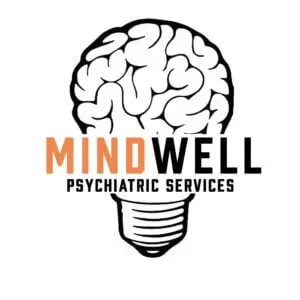Psychological distress affects many people, showing up as extreme anxiety or deep sadness. It varies in how severe it can be, often shaping our feelings, thoughts, and behaviors. Understanding these levels of psychological distress is crucial. So, learning to spot the signs is the first step toward getting better. For instance, common indicators include ongoing worry, which might link to an anxiety disorder, and prolonged unhappiness that could signal deeper mental health issues.
Find a psychiatrist in Las Vegas. Mindwell Psychiatric Services, guided by the expert care of Michael Kuron, MSN, APRN, PMHNP offers comprehensive help. They focus on providing personalized health care that meets each person’s unique needs. This approach helps manage symptoms of psychological distress and supports overall mental well-being. In addition, they offer various treatments that can address these challenges effectively. Above all, reaching out for help can lead to better mental health and a more fulfilling life, proving that overcoming mental illness is not just possible but expected with the right support.
What is Psychological Distress?
Understanding the Basics
Psychological distress can show up in many ways. Some feel a constant worry. Others might feel a deep sadness that doesn’t seem to go away. So, these feelings can make it hard to work, enjoy life, or even connect with others. This is why recognizing them early is so important.
The Impact on Mental Health
Experiencing psychological distress can be a sign of a deeper mental disorder. It’s a condition that can drain your energy and make everything feel harder. This isn’t just about feeling sad or worried—it’s when these feelings take over and make it hard to cope.
Why It Matters to Public Health
Psychological distress is not just a personal issue; it’s a major public health concern. It affects how people interact with the world, impacting jobs, relationships, and more. Understanding it helps communities support those in need. Therefore, addressing psychological distress can lead to healthier, happier populations.
Emotional Suffering and Its Triggers
The causes of psychological distress are varied. They can be due to life stresses, like losing a job or a loved one, or bigger health issues. Sometimes, the reasons are not clear, which can make the emotional suffering even more challenging.
The Role of Analysis
Studies, such as logistic regression analysis, help us understand who is most at risk and why. This type of research is crucial. It looks at large groups of people to find patterns in emotional health. Knowing these patterns helps experts, like those at Mindwell Psychiatric Services, create better ketamine treatment plans.
How Mindwell Psychiatric Services Can Help
At Mindwell Psychiatric Services, we know that dealing with psychological distress can feel lonely, but help is available. Our approach is tailored to each person, focusing on reducing symptoms and improving quality of life.
We use proven methods to help you find relief and regain control. So, if you or someone you know is struggling, remember, you’re not alone. Mindwell Psychiatric Services is here to help.
Recognizing the Symptoms of Psychological Distress
Physical Symptoms
- Fatigue: So, if you are feeling tired all the time, it could be a sign.
- Headaches: These might happen more often and be very painful.
- Changes in Appetite: You might eat a lot less or a lot more than usual.
- Sleep Issues: Therefore, having trouble falling asleep or sleeping too much could be a clue.
Emotional Symptoms
- Persistent Sadness or Low Mood: Feeling sad most days.
- Anxiety: Worrying a lot about things like your job or money.
- Irritability: Getting upset easily.
Behavioral Symptoms
- Withdrawal: Staying away from friends and activities you used to enjoy.
- Neglect of Responsibilities: Finding it hard to keep up at work or home.
- Substance Use: Using drugs or alcohol more than usual to deal with stress.
Connecting Symptoms to Bigger Issues
These signs might point to bigger problems, like a personality disorder, where someone’s feelings and behaviors make daily tasks very hard. Studies show that not liking your job or having trouble at home can lead to mental distress. So, it’s important to recognize these symptoms early.
Why Recognizing Symptoms Matters
Knowing these signs helps not just you, but also your family and friends. For instance, understanding what you are going through can make them more supportive. This can make a big difference at home and work.
When to Get Help
Mindwell Psychiatric Services offers comprehensive mental health care tailored to each individual’s needs. Reaching out for help is a proactive step towards better mental well-being. According to Psych Central, seeking assistance as soon as symptoms start often leads to more effective management and quicker recovery.
So, if these issues seem familiar, don’t wait. Help is available, and it can make a significant difference in managing day-to-day challenges and enhancing your quality of life.
Common Causes of Psychological Distress
Environmental Factors
- Life Changes: Big changes in life, such as losing a job, can lead to psychological distress. So can ongoing stress from not liking your job.
- Social Life: If you feel alone or unsupported, you might face more stress. Having friends and family around usually helps a lot.
- Work Life: Jobs that demand a lot can be stressful. For health professionals, for example, high stress is common and increases the risk of distress.
Psychological Factors
- Dealing with Stress: How you handle stress matters. If you find it tough, you might feel more distressed.
- Personality: Some people naturally worry more. This can make them feel more stressed.
- Past Problems: If you’ve had mental health issues before, you might be more likely to feel distressed again.
Biological Factors
- Genetics: Some of us are more likely to feel stressed because of our genes.
- Brain Chemistry: Sometimes, the chemicals in our brain that affect our mood aren’t balanced right.
The Impact on Family and Work
Changes in family life, like having a baby or dealing with family health issues, can also cause stress. A current study shows that these personal changes can make psychological distress worse. So, this is why it’s key to understand how our home life affects our mental health.
Why Support is Crucial
Having people who can help, like friends, family, or professionals at Mindwell Psychiatric Services, is very important. They can offer support and guidance, making it easier to deal with stress. Therefore, if you’re feeling stressed, reaching out for help can make a big difference.
Impact of Psychological Distress on Daily Life
At Work
Psychological distress often leads to job dissatisfaction. For example, you might find it hard to focus or keep up with tasks. This can make you feel even more stressed at work. Also, studies show that people under serious psychological distress are at higher risk of losing their jobs. This kind of stress not only affects job performance but can also lead to bigger issues if not addressed
In Relationships
When you’re distressed, it might be harder to get along with others. You could become irritable, which can cause arguments. This makes it tough to support each other during hard times. In other words, stress can strain relationships, making you feel more alone and adding to your distress.
Personal Health
Distress doesn’t just influence your mood; it can hurt your health, too. Cohort studies have found that serious psychological distress increases the risk of developing heart disease. This happens because stress affects your body in ways that can lead to long-term health problems.
How Mindwell Psychiatric Services Can Help
At Mindwell Psychiatric Services, we understand the challenges of dealing with psychological distress. We’re here to assist you in managing these feelings and improving your overall quality of life. So, if you feel overwhelmed, reaching out for help can make a significant difference. Getting support early can lessen the impact of distress on your work, relationships, and health.
By addressing psychological distress, you can begin to see improvements in all areas of your life. Mindwell Psychiatric Services offers a wide range of support tailored to your specific needs, giving you the necessary tools to tackle daily challenges. Emotional exhaustion doesn’t have to be a constant state; with effective stress reduction strategies, we can help lower your risk of experiencing ongoing distress. Therefore, taking the step to seek help is crucial—it can lead you to a happier and healthier life.
Coping Mechanisms and Support Systems for Psychological Distress
Mindfulness and Relaxation
Practices like deep breathing, meditation, and yoga can calm both your mind and body. Integrating these activities into your daily routine can significantly aid in stress reduction and prevent the risk of experiencing emotional exhaustion.
Physical Activity
Exercise is a powerful method for relieving stress. It benefits both your mental and physical health. Even a short walk can boost your mood and improve your overall well-being.
Healthy Routine
Maintaining a regular schedule for eating, sleeping, and leisure can stabilize your day and enhance your mental health. This structured approach helps manage stress and reduces the chances of feeling overwhelmed.
Reach Out to Friends and Family
Talking to trusted people about your feelings can offer great comfort. Sharing your experiences can lessen the burden of stress and foster emotional support.
Join Support Groups
Engaging with others facing similar challenges can provide a sense of understanding and community. Such groups offer a wide range of perspectives and coping strategies, which can be very comforting and reduce feelings of isolation.
Professional Help
Organizations like Mindwell Psychiatric Services specialize in assisting individuals to manage psychological distress. We offer a broad spectrum of support and treatments tailored to meet your specific needs, ensuring you have access to the best tools for managing your health.
The Role of Professional Help
Sometimes, professional help is necessary to manage psychological distress effectively. Professionals can provide therapies and treatments that aren’t available through self-help or casual support. They customize these treatments to meet your specific needs, ensuring you receive the best care possible.
Therapy
Consulting with a therapist offers a secure space to understand and manage your emotions. It’s an environment where you can openly express your feelings and explore coping mechanisms. This is especially important during challenging times, such as the COVID-19 pandemic, which has raised the level of distress for many.
Medication
Consulting with a therapist offers a secure space to understand and manage your emotions. It’s an environment where you can openly express your feelings and explore coping mechanisms. This is especially important during challenging times, such as the COVID-19 pandemic, which has raised the level of distress for many.
The Impact of Not Coping Well
Not managing psychological distress properly can increase the risk of more serious mental and physical health issues. So, studies published in international journals have shown that inadequate stress management can lead to health problems like heart disease and worsen mental health conditions.
Treatment Options Available at Mindwell Psychiatric Services for Psychological Distress
Cognitive Behavioral Therapy (CBT)
CBT helps patients understand how their thoughts and feelings affect their actions. This therapy is particularly effective for those suffering from major depression and bipolar disorder. Studies in health sciences confirm that CBT can significantly reduce symptoms by teaching effective stress medication prescription and management techniques.
Interpersonal Therapy (IPT)
Focused on improving relationships, IPT is vital for patients dealing with psychological distress from personal interactions. For those with bipolar disorder or major depression, strengthening relationships can lead to significant improvements in mental well-being.
Psychoeducation
Knowledge is a powerful tool in managing mental health conditions. By learning about psychological distress and its impact, patients can recognize and modify harmful behaviors and thought patterns. This is crucial for those dealing with major depression or bipolar disorder. Content adheres to the highest standards of content integrity, ensuring that information is accurate and useful.
Antidepressants
These medications adjust brain chemicals to improve mood and are particularly effective in reducing the emotional and physical symptoms of psychological distress.
Anti-anxiety Medications
So, for those with severe anxiety, these medications can provide quick relief, which helps patients engage more effectively in therapy.
Mood Stabilizers
Used to prevent extreme mood swings, these medications help maintain emotional balance, important for overall mental health.
Lifestyle Modifications
Simple lifestyle changes can significantly improve psychological health. So, we focus on enhancing diet, exercise, and sleep patterns.
Stress Management Techniques
After that, we teach techniques like mindfulness and relaxation to help patients manage their stress more effectively. These skills are vital in reducing the overall impact of stress on health.
Ongoing Support and Monitoring
Recovery is a journey. Therefore, we provide continuous support, adjusting treatment plans as needed to ensure the best outcomes for our patients.
Preventive Measures to Avoid Psychological Distress
Understanding how to prevent psychological distress is crucial for maintaining mental health. At Mindwell Psychiatric Services, we emphasize the importance of early prevention to help reduce the prevalence of psychological distress. Here are some effective strategies to keep distress at bay.
Build a Strong Support Network
Having supportive relationships is vital. Family and friends can provide comfort and practical help. So, nurturing these relationships is key. Also, being part of community groups or networks can offer additional support and reduce feelings of loneliness.
Develop Healthy Lifestyle Habits
Eating well, exercising regularly, and getting enough sleep are foundational for good mental health. Each of these can significantly impact your mood and energy levels, thereby reducing the risk of depression and anxiety.
Develop Healthy Lifestyle Habits
Eating well, exercising regularly, and getting enough sleep are foundational for good mental health. Each of these can significantly impact your mood and energy levels, thereby reducing the risk of depression and anxiety.
Manage Stress Effectively
Learning to manage stress is crucial. Techniques like mindfulness, meditation, and regular physical activity can help maintain mental balance. Therefore, incorporating these practices into your daily routine is beneficial.
Regular Mental Health Check-Ups
Just as you would see a doctor for a physical check-up, regular mental health assessments are important. These check-ups can catch early signs of distress, making interventions more effective. Mindwell Psychiatric Services offers these assessments, helping you stay on top of your mental health.
Stay Informed
Keeping up with medical news and new studies conducted on mental health can empower you with knowledge. Understanding the factors that lead to psychological distress helps in taking proactive steps to avoid them.
Educate Yourself and Others
Awareness and education about mental health can reduce stigma and encourage more people to seek help early. Knowing the signs and symptoms of psychological distress can lead to quicker action and support.
Set Realistic Goals
Setting achievable goals can prevent feelings of inadequacy and frustration, which often lead to distress. So, it’s important to set realistic expectations for yourself and adjust them as needed.
Practice Good Emotional Hygiene
Pay attention to your emotional health. Recognize and express your feelings in healthy ways, and don’t hesitate to seek help if you’re feeling overwhelmed. Also, practicing gratitude and focusing on positive aspects of your life can enhance your emotional resilience.
Importance of Professional Help
Regular consultations with a psychiatrist in Las Vegas can significantly reduce the risk of developing serious psychological issues. At Mindwell Psychiatric Services, we also provide personalized care plans based on your specific needs, helping you maintain mental health and prevent psychological distress.
Conclusion
Understanding and managing psychological distress is essential for maintaining health and wellbeing. Psychological distress can manifest as anxiety, depression, and other emotional issues that disrupt daily activities and reduce quality of life. Then, recognizing the symptoms early is crucial, as it allows for timely intervention that can mitigate serious consequences. Chronic stress, for instance, often leads to increased risk of developing more severe psychological disorders. By identifying and addressing the causes of distress, individuals can adopt effective coping strategies and improve their overall mental health.
At Mindwell Psychiatric Services, we encourage anyone experiencing signs of psychological distress to seek help immediately. Early intervention is key to preventing the progression of symptoms and maintaining overall health. Our team offers personalized care, including various therapies and medications, tailored to each individual’s needs. So, if you are struggling, please reach out to Mindwell Psychiatric Services for a consultation. Also, taking this step is not just about treating a condition; it’s about improving your quality of life and ensuring your future mental health is a priority. Let us help you manage your distress and guide you toward a happier, healthier life.
FAQs
What is Psychological Distress?
Psychological distress is when you feel very stressed, anxious, or sad for a long time. These feelings are strong enough to disrupt your daily life, making it hard to handle normal activities and relationships.
What Causes Psychological Distress?
It can be triggered by major life changes, ongoing job dissatisfaction, or personal challenges. Identifying what triggers your distress is the first step to managing it.
How Can Psychological Distress Affect My Health?
If left unmanaged, psychological distress can lead to mental health issues like stress disorders or affective disorders. It can also impact your physical health, leading to sleep problems or high blood pressure.
Can Psychological Distress Affect Job Satisfaction?
Yes, distress can make you feel less satisfied at work. You might struggle to concentrate or lose interest in your job, which can decrease your performance and satisfaction.
What Are the Signs of Psychological Distress?
Signs include constant sadness or anxiety, changes in sleep or appetite, losing interest in activities you once enjoyed, and feeling tired often.
How Can I Manage Psychological Distress?
To manage distress, recognize the signs, understand its causes, and seek help. Mindwell Psychiatric Services offers support through therapy, medication, and stress management techniques.
Is Psychological Distress Common?
Yes, it’s common. Many people experience psychological distress at some point due to stress and challenges in their lives.
When Should I Seek Help for Psychological Distress?
You should seek help if your feelings start to interfere with your daily life, last for more than a few weeks, or get worse. Getting help early can prevent more serious issues.
What Treatment Options Are Available?
At Mindwell Psychiatric Services, we provide a range of treatments, including counseling, medication, and support groups, tailored to meet your specific needs.
How Can I Prevent Psychological Distress?
So, prevention includes maintaining a healthy lifestyle, building strong social networks, managing stress, and getting regular mental health check-ups. Recognizing early signs and taking action is key.





